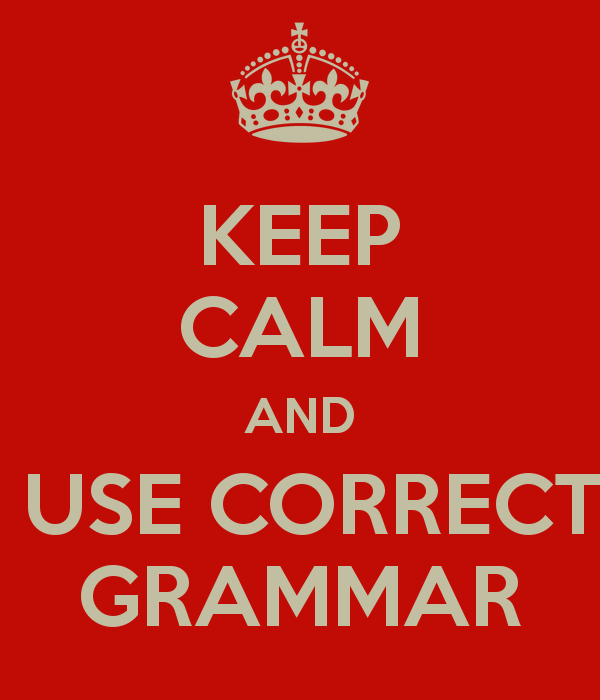It’s Easy to Make English Language Errors; Here are Some Malaprops to Be Aware of.

|
This article was updated on 03/06/21.
Ads we feature have been independently selected and reviewed. If you make a purchase using the links included, we may earn commission, which helps support the site. Thank you for your support.
There are two types of people who have been prepared (to some arbitrary extent) to function in society; those who make grammatical errors on a regular basis (and sometimes don’t care) and others who pull their hair out unhappily when they see them in print or hear them spoken. There’s no doubt that there are an increasing number of errors online. Social media only compounds the problem. Are there no editors employed at Yahoo or are we being dumbed down? Anyway, we have compiled a list of some common grammatical errors, because, as with many other things, we should know the rules before we break them.
Capitalize Properly
Almost everyone knows to capitalize proper nouns and adjectives derived from proper nouns, such as the Grand Canyon. However, with the passage of time the requirement is sometimes dropped, such as the evolved word herculean (from the Greek Hercules). Why? Who knows.
You should capitalize brand names but not necessarily the product type itself. For example, Tabasco sauce. Capitalize days of the week and months of the year–a Sunday in September.
Religions can be tricky. Capitalize the Bible but not biblical. But do not capitalize the words heaven, hell, the devil, or satanic. How about organizations that claim to be religions but operate like the Scientology cult? Well, they might also be a commercial enterprise so they get a pass. How about Extraterrestrial objects? They are also tricky. The names of planets are capitalized but not the moon or the sun. Confused yet?
Capitalize specific geographical regions. Do not capitalize points of the compass. You might live in the Northwest but specifically in the northwest area of your burg.
Titles are simple yet not exact. Capitalize the title’s first and last word. Capitalize all adjectives, adverbs, and nouns. Do not capitalize a coordinating conjunction (and, or, nor, but, for, yet, so) unless it is first or last in the title. These rules vary so check house rules with your editor.
Who vs Whom
Although it might just seem pretentious to use whom, there is also a good reason. Basically, who is subjective (he, she, it, they, etc.) while whom is objective (her, us, them, etc.). Test your prose. When in doubt, substitute who with the subjective pronouns he or she, (Who loves you? He loves me. Similarly, you can also substitute “whom” with the objective pronouns him or her. I consulted with a consultant whom I met in L.A. I consulted him.
I know, I know, it makes my head spin as well, and I write for a living! This video makes things a bit less turbid:
Lie vs Lay
This one should not be difficult (in my humble opinion) but it shows up all the time. Lay is transitive and calls for a direct subject. On the other hand, lie (or its past tense lay) is intransitive meaning that it needs no direct object. Example: The Rocky Mountains lie between the East and West coast.
In other words, you lie down, but you lay something down. Lie does not require a direct object. Lay requires a direct object.
Comma and Semicolon Usage
Commas and semicolons are used interchangeably by many authors but this is really just sloppy writing. The rule is really fairly simple. If the two phrase fragments are really related but can stand on their own, use a semicolon (see what I just did?), otherwise use a comma.
Another point of contention is the so-called Oxford comma. This is the final comma in a list. There are apples, oranges, and limes. Or, there are apples, oranges and limes. Should you use it? It depends on who you are writing for. If a boss or client is paying you, it’s a no-brainer. I prefer it because it makes the writing more clear and less ambiguous; others do not. Why generate potential confusion when deciding how and when to use this ambiguous writing rule?
Know the difference between i.e. and e.g.
The term i.e. is a shortening of the Latin phrase id est, which in English means “that is.” It’s used to introduce a rephrasing or elaboration on something that has already been stated. The term e.g. is a shortening of the Latin expression exempli gratia, meaning “for the sake of example” or more simply, “for example.” This term is also used to refer to something that has already been stated.
Affect and Effect
The problem with the confusion over these two words might be the fact that they sound so similar. I see them used interchangeably every day on the internet. But in reality, they are somewhat related but completely different.
Affect is almost always a verb (as in., Twitter affects people’s attention spans as it engages in social behavior modification), and effect is almost always a noun (as in, Facebook’s effects can be politically selective). Affect works to either influence or produce an impression. Effect is the thing produced by the affecting agent It describes a result or outcome. The effect of Hurricane Florence was primarily on the coast, but even communities inland were affected.
Is This a Moot Point?
How often have you heard moot misused? More often than you think is my guess. It does not mean the “point” being referred to is unimportant or irrelevant, it actually means it is up for debate. Who knew? So when you see “The city council thinks speed bumps in our neighborhood is a moot point,” it means it is still up for debate, not that they don’t give a solitary hoot for your safety.
These are just a few of the common grammatical mistakes we see in writing today, both online and offline. The takeaway is that it is important to sharpen your writing skills with the proper application of grammar rules because you can’t always trust your editor to catch everything. This is not a moot point.

Further Reading
- Social Media Censoring New York Post to Protect Biden
- Is Scientology a Cult or a Religion?
- The Character that was Removed from the Alphabet
- 5 Ways to Form New Good Habits
- Happiness is Not an Emotion
- A Grammar Rule We Know But Not Taught
Looking for more great content? Visit our main page or partner sites:
I offer article and blog-writing services. Interested? Hire Me!
Did you find this article helpful? Millions of readers rely on information on this blog and our main site to stay informed and find meaningful solutions. Please chip in as little as $3 to keep this site free for all.




